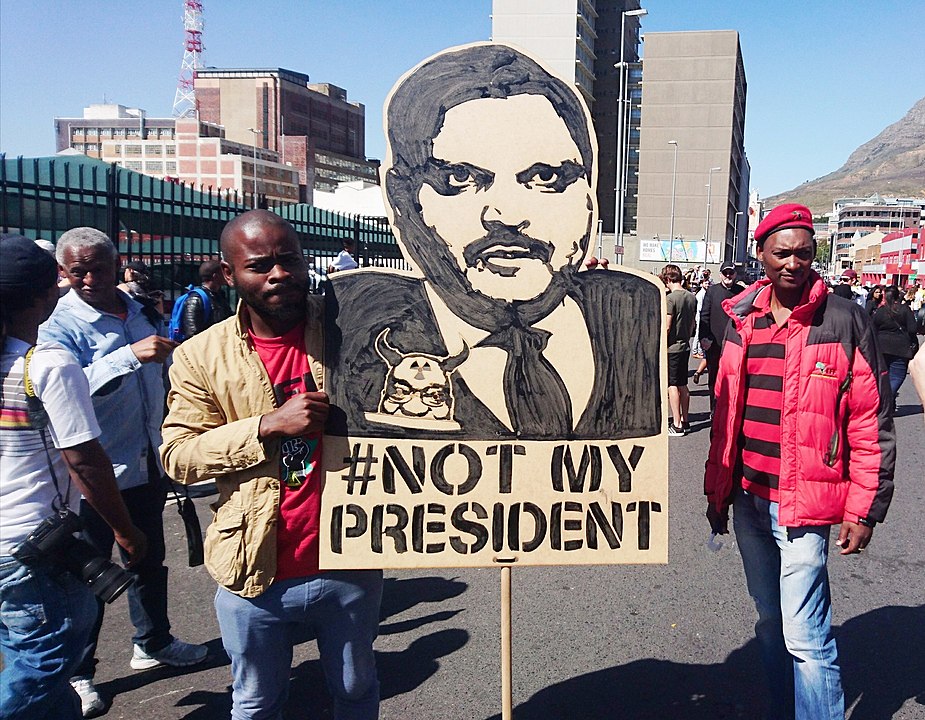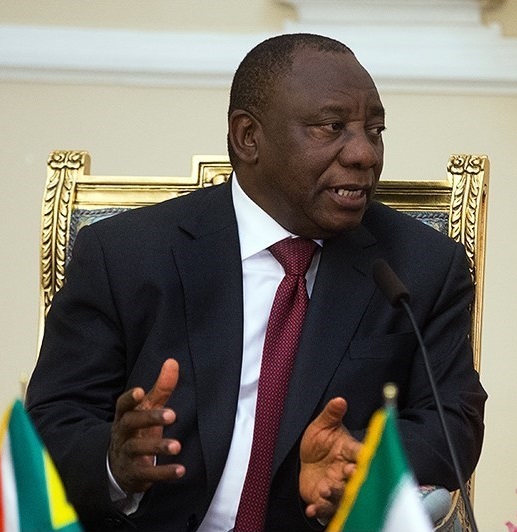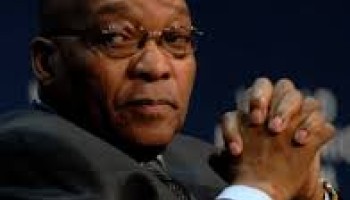Ramaphosa, who has portrayed himself as an anti-corruption crusader, was accused of violating the executive code of ethics by the country’s anti-corruption watchdog. He succeeded Zuma, who stepped down in early 2018 following several years of mounting calls to resign because of corruption and racketeering allegations.
Zuma’s tumultuous tenure, marked by “Zuma Must Fall” protests, also came to be associated with the “state capture”--a term that denotes the comprehensive rigging of the political decision-making process by wealthy businessmen and political cronies--of his governing African National Congress party, which has held power in the country since Nelson Mandela’s election in 1994.
Zuma’s testimony last week largely centered on his relationship with the wealthy Gupta family, who own a spectrum of companies and conglomerates--including computer equipment and mining companies--that frequently secured lucrative contracts with the government, all while Zuma’s son held a senior position in the Gupta business empire.
The two families came to be known as the “Zuptas,” and public officials have previously said that the Gupta brothers had significant sway over political decision-making that would have had implications on their business interests.  Protesters carry sign depicting Atul Gupta at a Zuma Must Fall protest (Discott)
Protesters carry sign depicting Atul Gupta at a Zuma Must Fall protest (Discott)
Zuma has also been accused of accepting a bribe from the CEO of Bosasa, another controversial government services company that has been accused of corruption.
The public testimony, part of what has been called the “state capture inquiry,” came after nine different officials had already testified against Zuma, and was a highly anticipated event that was broadcast live on several television stations and on Youtube over the course of the week.
It was frustratingly defined, however, by Zuma’s obfuscation of questions and outright denial of the charges against him. On several occasions he called the charges against him “lies” and echoed his longtime insistence that the investigation into his role in state capture is part of a decades-long conspiracy.
"There has been a process, particularly against Jacob Zuma – a conspiracy," Zuma said in his opening statement on Monday.
He repeatedly dodged and avoided directly answering questions pertaining to the allegations against him, with Zambia’s Sunday Times counting 36 different occasions during which Zuma claimed complete ignorance in response to lines of inquiry from prosecutors.
Early analyses of Zuma’s testimony described it as a “train-wreck” that further discredited him in the eyes of the public and strengthened the position of his successor, Ramaphosa, who is seen as his rival within the party and has consistently presented himself as a remedy to the corruption that has plagued the ANC and the South African government.
“You have a sense that there is paranoia at work rather than a reasoned explanation of events,” Ben Turok, a former member of the ANC, told Bloomberg in an article published on Thursday. “Anything that is bad for Zuma is better for Ramaphosa. There has to be a transition, a weaning away of loyalty from Zuma to Ramaphosa.”
However, as Zuma flailed on the stand, South Africa’s controversial Public Protector, Busisiwe Mkhwebane, announced that Ramaphosa himself had violated the constitution and breached the executive code of ethics in “misleading” parliament about a $36,000 donation he had received from Bosasa in 2017.
 Cyril Ramaphosa took up office one day after Zuma’s resignation (Erfan Kouchari)
Cyril Ramaphosa took up office one day after Zuma’s resignation (Erfan Kouchari)
Ramaphosa fiercely denied Mkhwebane’s claim in a speech to reporters on Sunday afternoon.
"After careful study, I have concluded that the report is fundamentally and irretrievably flawed,” he continued, and announced that he had decided to seek “urgent judicial review” of Mkhwebane’s report.
He reiterated his commitment to “bringing a decisive end to state capture and to turn the tide on corruption and to restore the integrity and credibility of our public institutions.”
On Monday the ANC announced its support of Ramaphosa and the judicial review.
The incident has left the country in a divisive lurch, with many scrutinizing Mkhwebane’s pro-Zuma inclinations, many scrutinizing the media’s pro-Ramaphosa tendencies, and many expressing frustration and hopelessness at the prospect of addressing state capture in South Africa.






